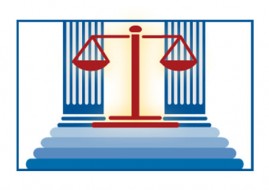Colorado Claims Jurisdiction Over New York Malpractice
By Lazar Emanuel [Originally published in NYPRR April 2002]
The Supreme Court of Colorado has held that a New York lawyer who represented a Colorado resident (Keefe) in a New York litigation is subject to Colorado’s long-arm statute and may be sued for malpractice in the Colorado state courts. [Keefe v. Kirschenbaum & Kirschenbaum, PC, Colo., No. 01SA203, 2/11/02.] The decision confirmed the action of a lower Colorado court which denied the firm’s motion to dismiss Keefe’s malpractice complaint for lack of personal jurisdiction.
Keefe was sued in the New York courts in 1988 by an insurance company which sought to recover payments made on Keefe’s behalf as surety on a loan. A Colorado lawyer referred the matter to the Kirschenbaum firm, which agreed to undertake the defense after requiring a $1,000 fee and filed an answer to the insurer’s complaint. Kirschenbaum was authorized to communicate directly with Keefe.
Keefe authorized Kirschenbaum to settle the plaintiff’s claim, but Kirschenbaum allegedly failed to communicate any offer to the New York plaintiff or to pursue the settlement. Keefe alleged that Kirschenbaum’s initial neglect of the matter lasted for more than four years. After four years, the New York plaintiff contacted Kirschenbaum again. Kirschenbaum wrote Keefe but sent its letter to the wrong address. The letter was returned undelivered. The firm contacted Keefe’s Colorado lawyer and told him it would take no further action until it heard from Keefe. The Colorado lawyer failed to contact Keefe.
The New York plaintiff continued to press for a resolution of the New York action. In 1996, Kirschenbaum again contacted Keefe’s Colorado counsel and demanded and was paid an additional fee. The firm then received and forwarded to the Colorado lawyer the New York plaintiff’s statement of liability, including interest. When the New York plaintiff moved for summary judgment on its original complaint, Kirschenbaum attempted to advise Keefe directly about the motion but, once again, sent its letter to the wrong address. Failing to hear either from Keefe or her Colorado attorney, Kirschenbaum did not respond to the summary judgment motion and judgment was entered for the plaintiff. The New York judgment was filed with the Colorado courts and Keefe was served with Notice of Entry.
Keefe contacted Kirschenbaum and Kirschenbaum agreed to negotiate settlement of the judgment upon payment of an additional $3,000 in fees “owed and anticipated.” After a stipulation of settlement was executed, Keefe sued both her Colorado lawyer and Kirschenbaum for malpractice. The suit was brought in the Colorado courts. The claim against the Colorado lawyer was settled, but the lower court denied Kirschenbaum’s motion to dismiss and Kirschenbaum appealed.
As recited in the Supreme Court’s opinion, the facts of the case do not indicate that Kirschenbaum ever visited Colorado in connection with the New York litigation, that Keefe ever met with Kirschenbaum in New York or anywhere else, or even that Keefe ever spoke personally with Kirschenbaum.
But the Colorado Court described Kirschenbaum’s actions as “activities purposefully directed at someone they knew to be a resident of this state.” The Court cited the following activities by Kirschenbaum as supporting its jurisdiction:
• Communications with Keefe and her Colorado attorney by mail and telephone
• Negotiating the terms of representation
• Requesting and receiving authorization for various actions
• Demanding and receiving payment of fees
The Court found it immaterial that the case originated in a referral by a Colorado attorney instead of a call to Kirschenbaum from Keefe directly. The Court said:
…it is not at all apparent that assertions of personal jurisdiction in this case would be inequitable…The defendants are attorneys, and the activity out of which the injury allegedly arose was an ongoing lawsuit with potential consequences for Keefe’s assets in this state. Kirschenbaum agreed to represent a resident of Colorado in litigation, presumably because he considered it to his advantage to do so. He consciously entered into the agreement, with foreseeable consequences, without attempting to limit by agreement the jurisdiction in which his conduct of the litigation could be challenged…It is Keefe who could be expected to be substantially disadvantaged by having to proceed against her Colorado and New York attorneys in separate jurisdictions.
The Court cited other cases in which it had found sufficient minimum contacts to support personal jurisdiction over out-of-state lawyers who represent Colorado clients. It was especially persuaded to enforce jurisdiction in this case because the case involved “litigation, with even more contacts and over a considerably longer period of time, and that it actually resulted in an enforcement attempt in the courts of this state.”
By extension of the Colorado Court’s reasoning, any out-of-state lawyer would be subject to the jurisdiction of the state courts whenever he undertook to represent a Colorado resident in the courts of the lawyer’s own state. The facts relied upon by the Court — continuous contact with the client; negotiation of claims; authorization to act; payment and collection of fees — are all essential elements of any representation.
The Court suggests that it might respect a written agreement between lawyer and client to limit jurisdiction of malpractice claims to the courts of the lawyer’s home state.
Lazar Emanuel is the Publisher of NYPRR.
DISCLAIMER: This article provides general coverage of its subject area and is presented to the reader for informational purposes only with the understanding that the laws governing legal ethics and professional responsibility are always changing. The information in this article is not a substitute for legal advice and may not be suitable in a particular situation. Consult your attorney for legal advice. New York Legal Ethics Reporter provides this article with the understanding that neither New York Legal Ethics Reporter LLC, nor Frankfurt Kurnit Klein & Selz, nor Hofstra University, nor their representatives, nor any of the authors are engaged herein in rendering legal advice. New York Legal Ethics Reporter LLC, Frankfurt Kurnit Klein & Selz, Hofstra University, their representatives, and the authors shall not be liable for any damages resulting from any error, inaccuracy, or omission.
Related Posts
« New Perspective: Revisiting “Cohen v. Lord Day & Lord” Ethics Opinions from Other Jurisdictions »













